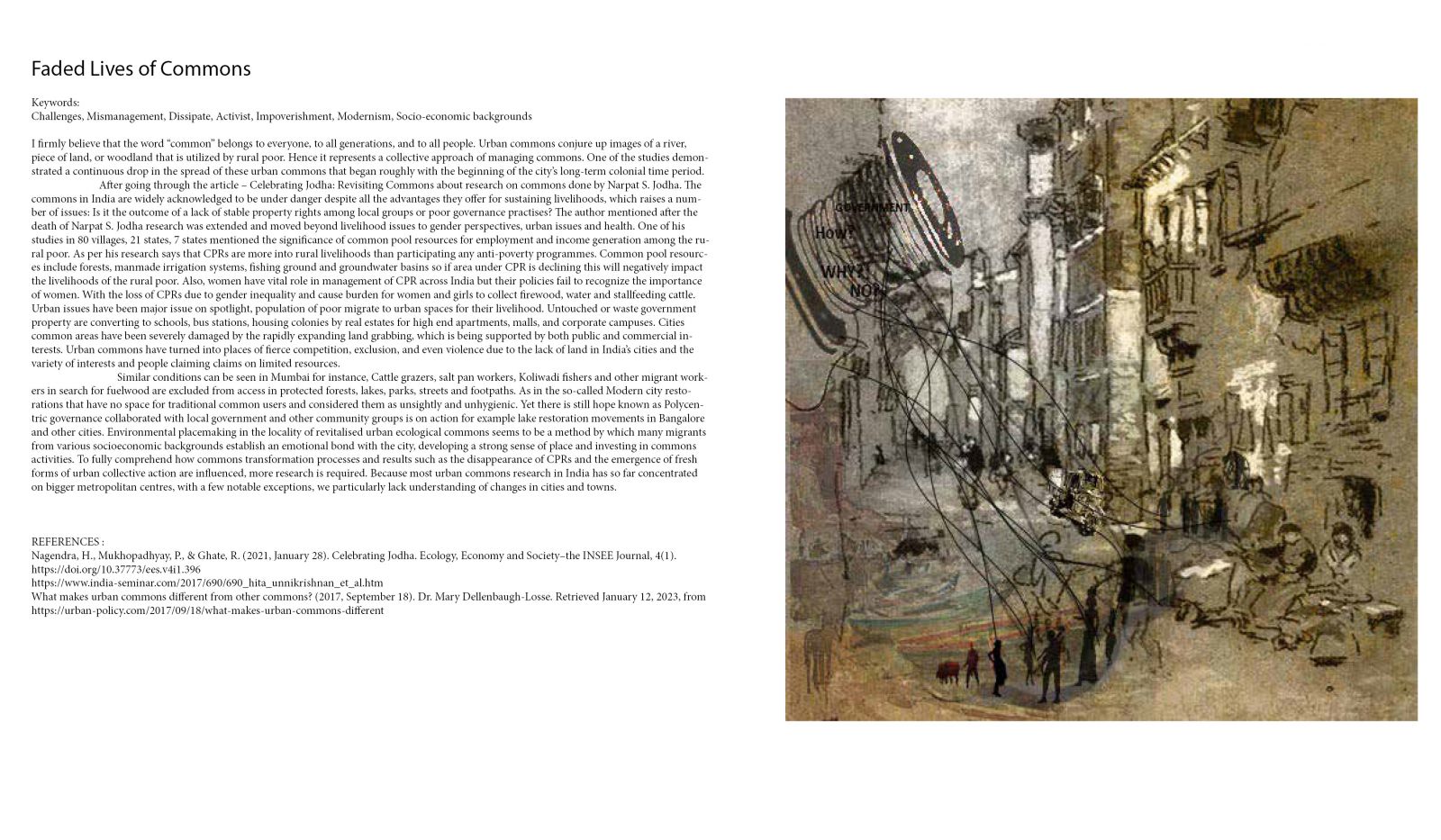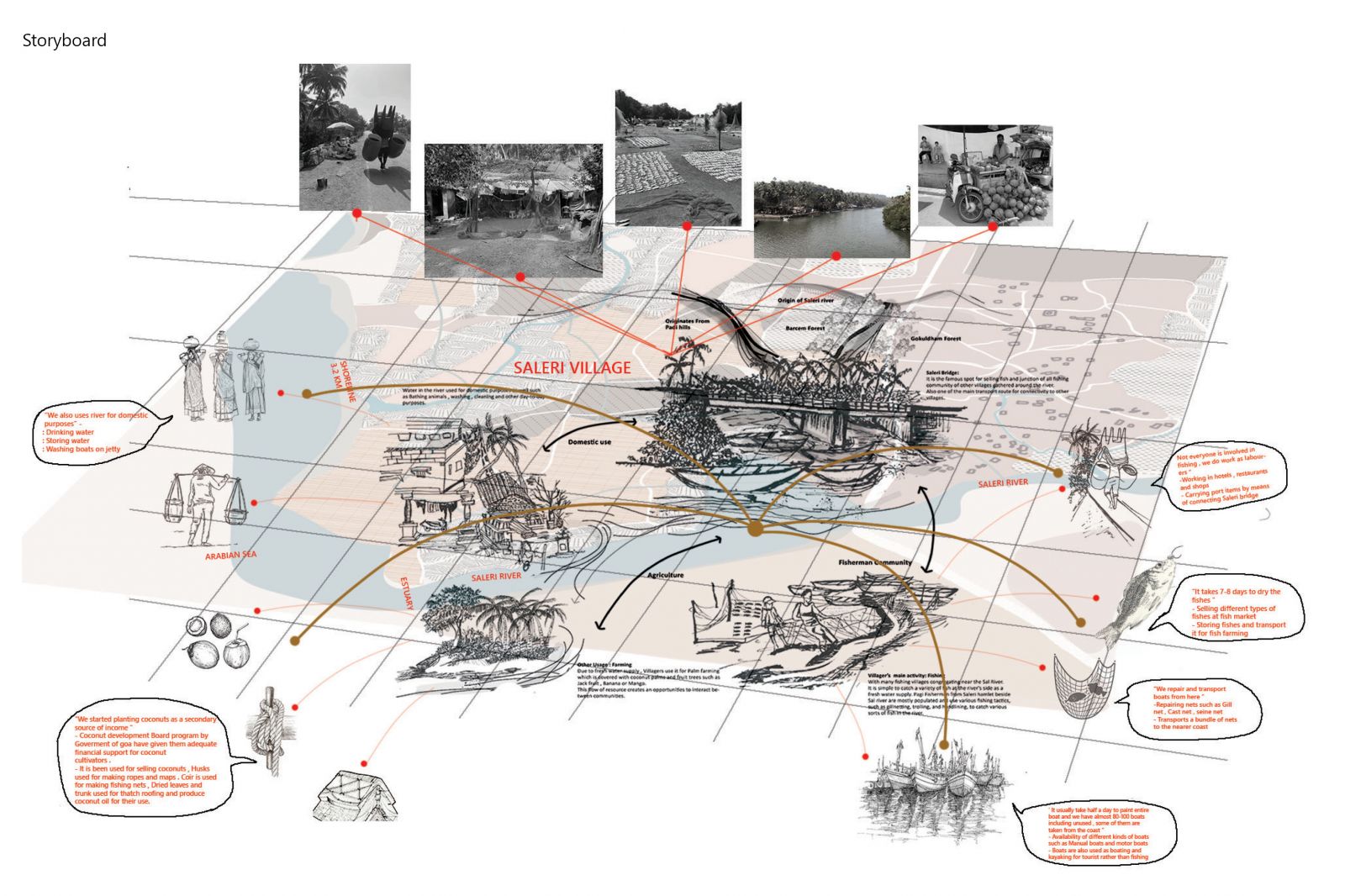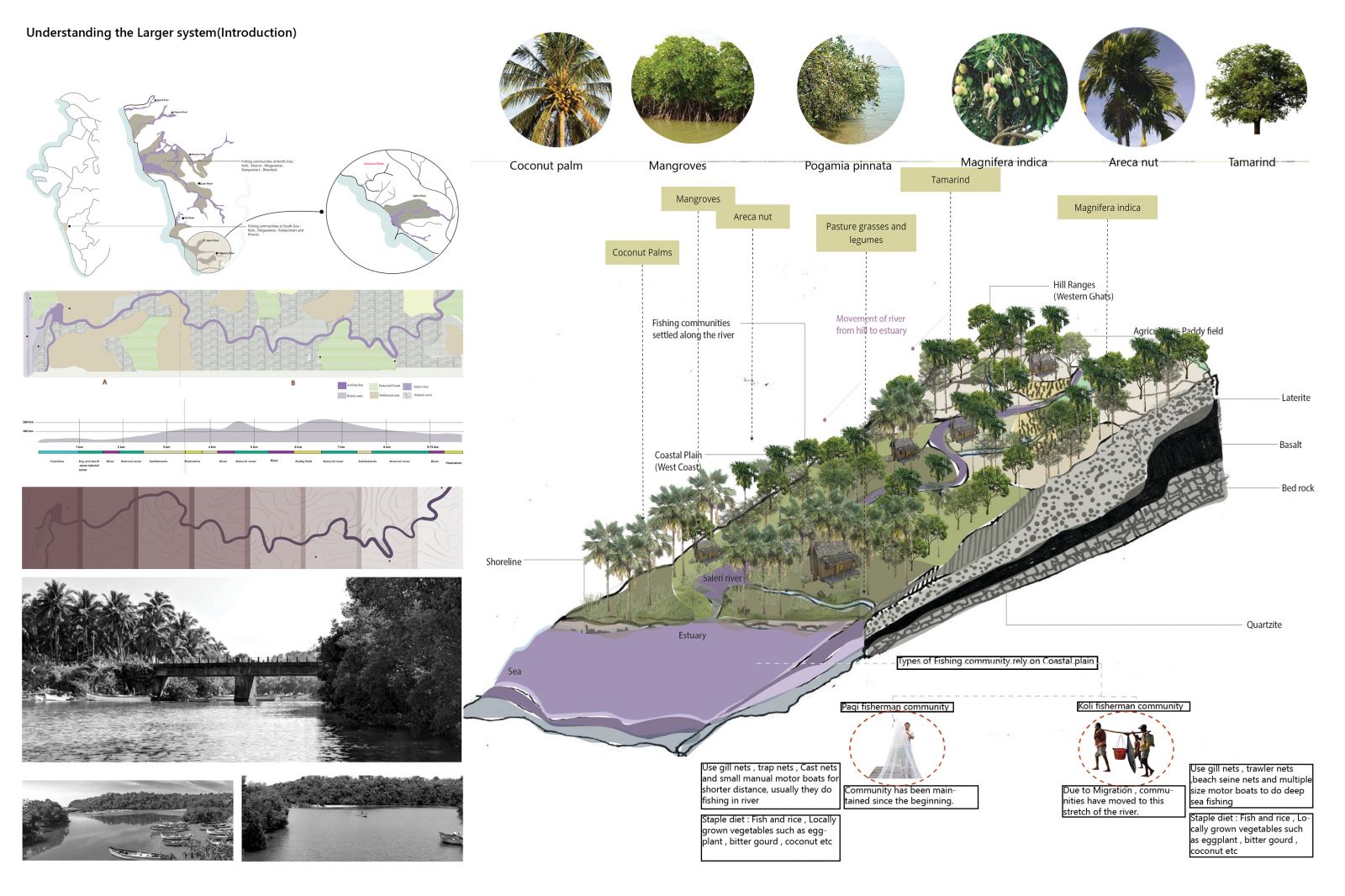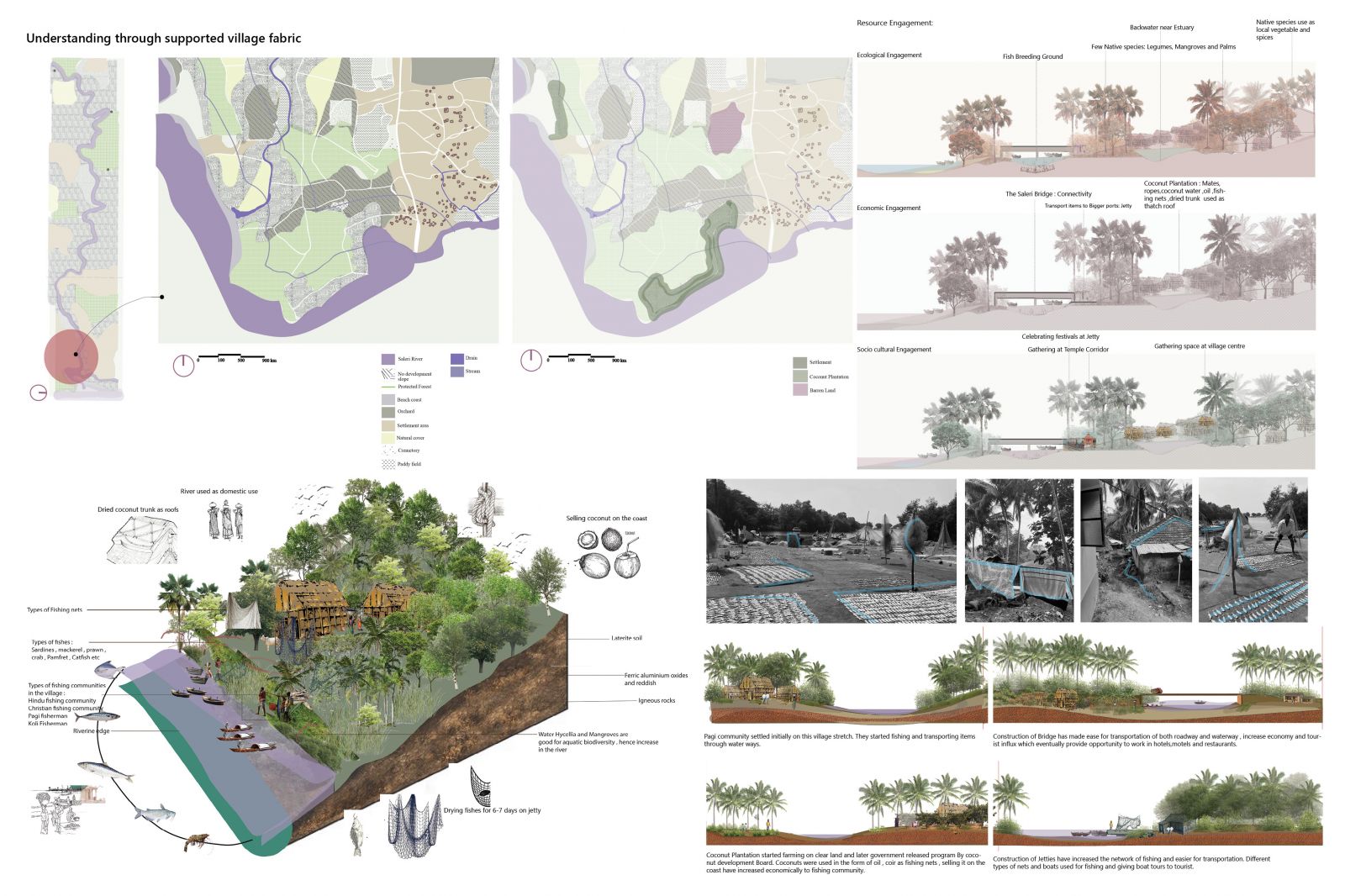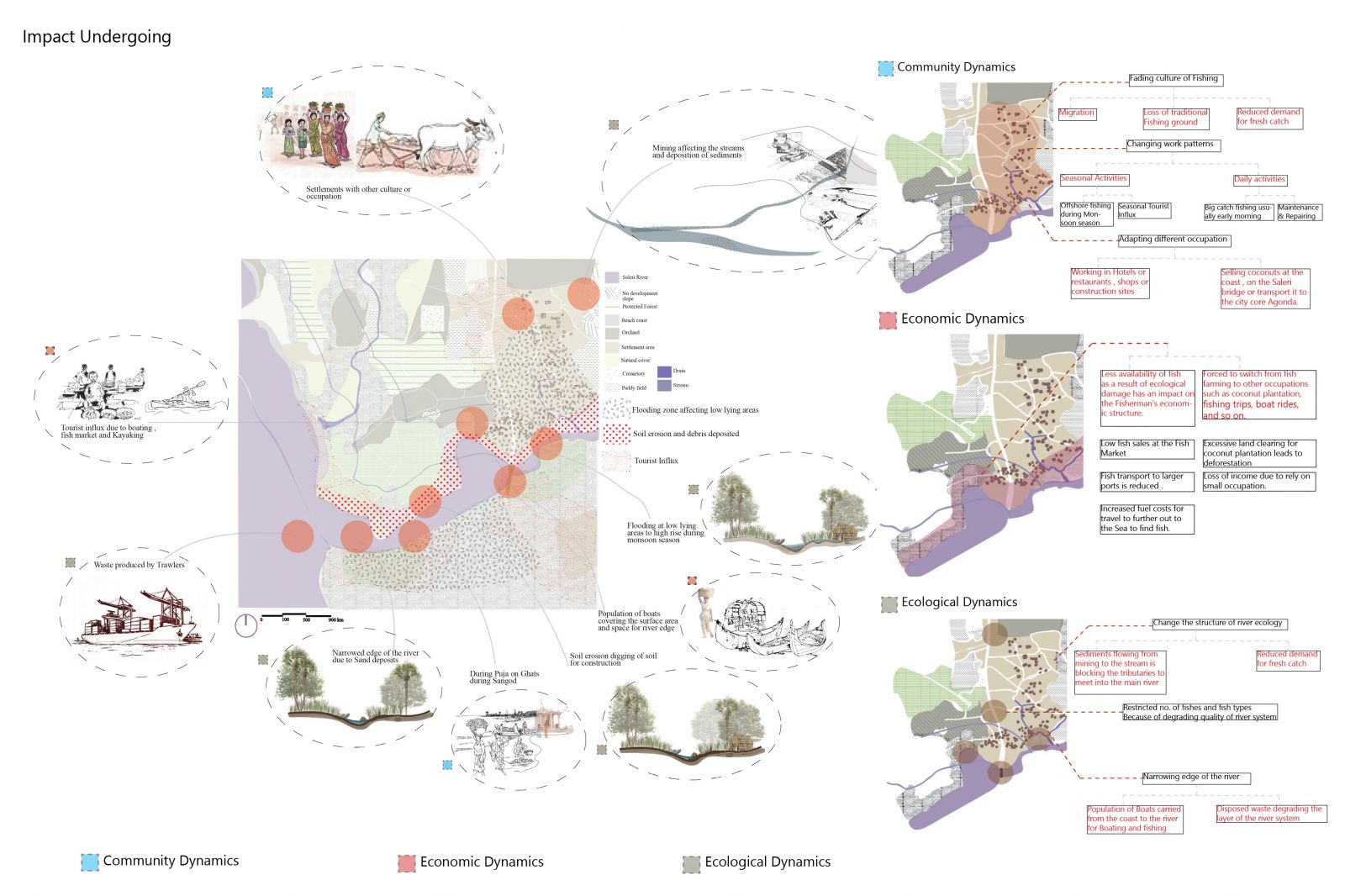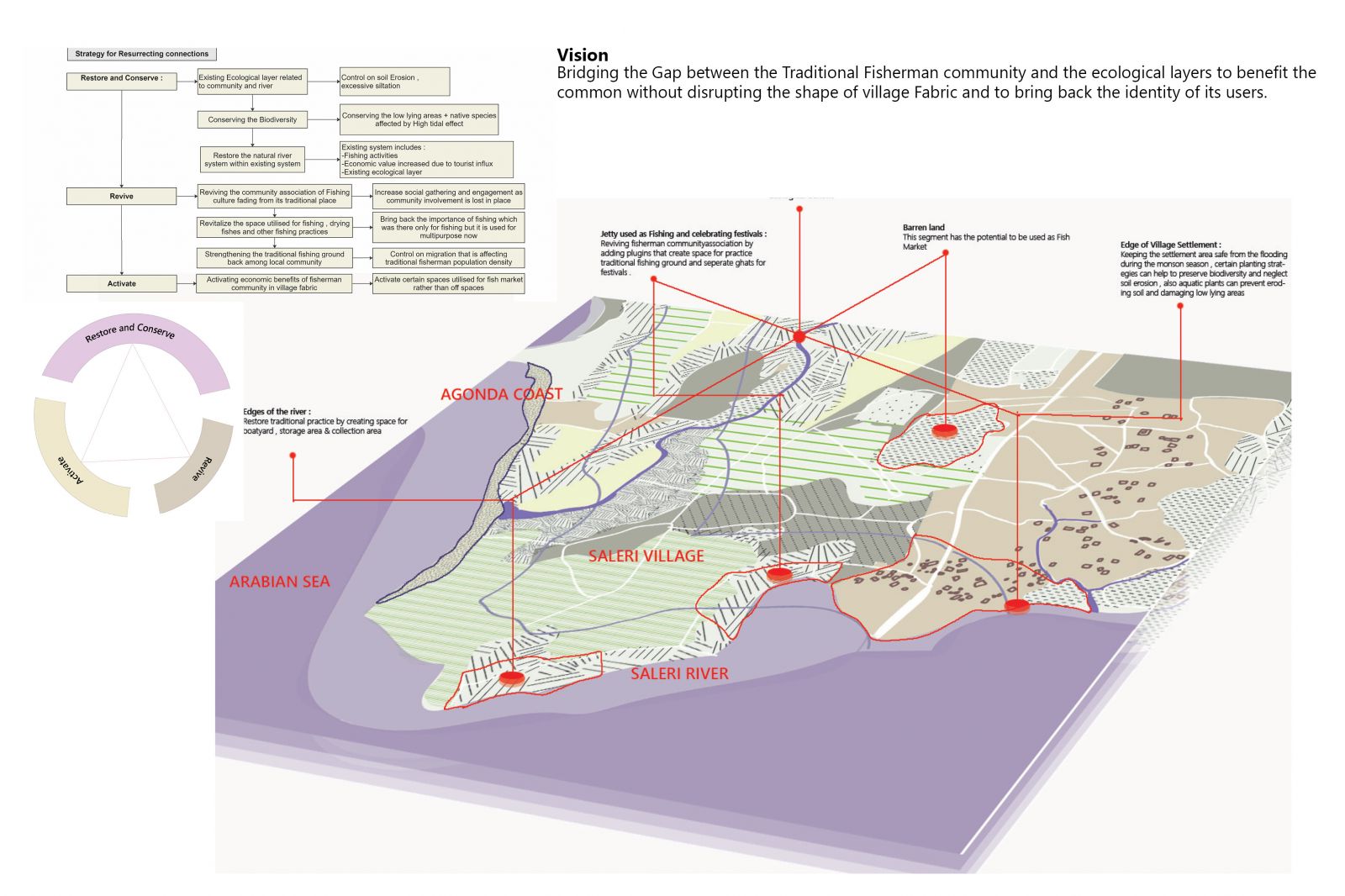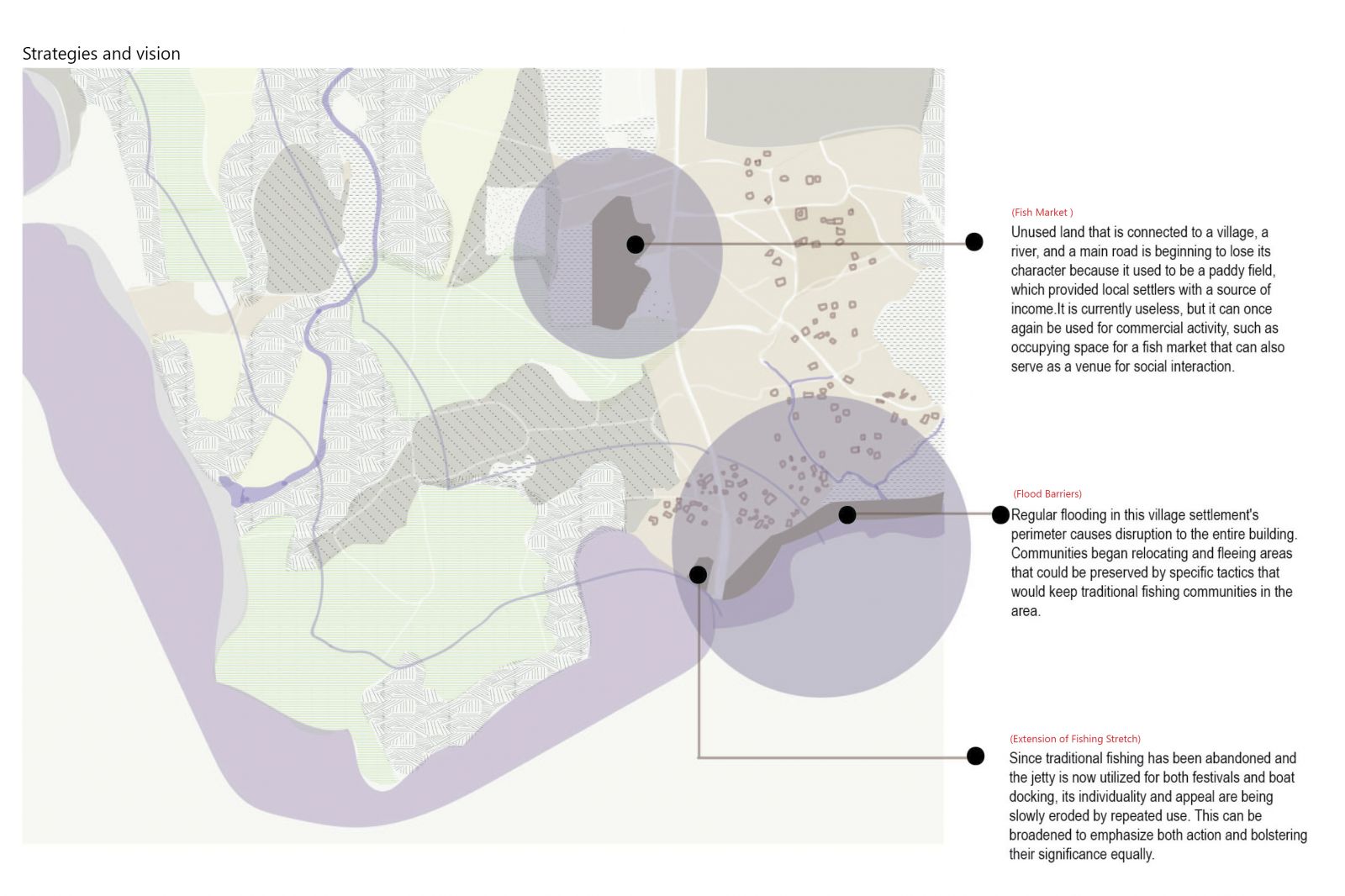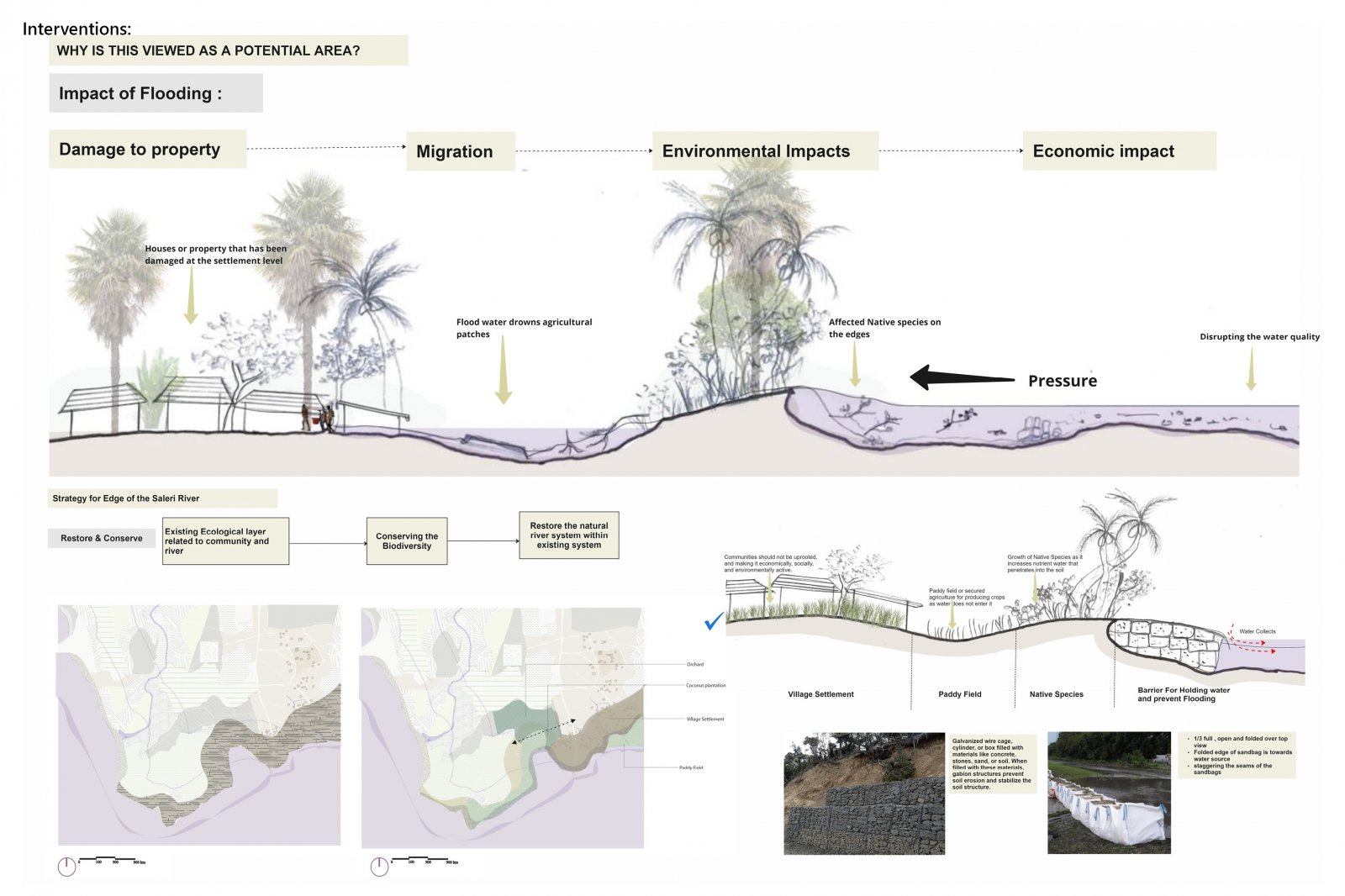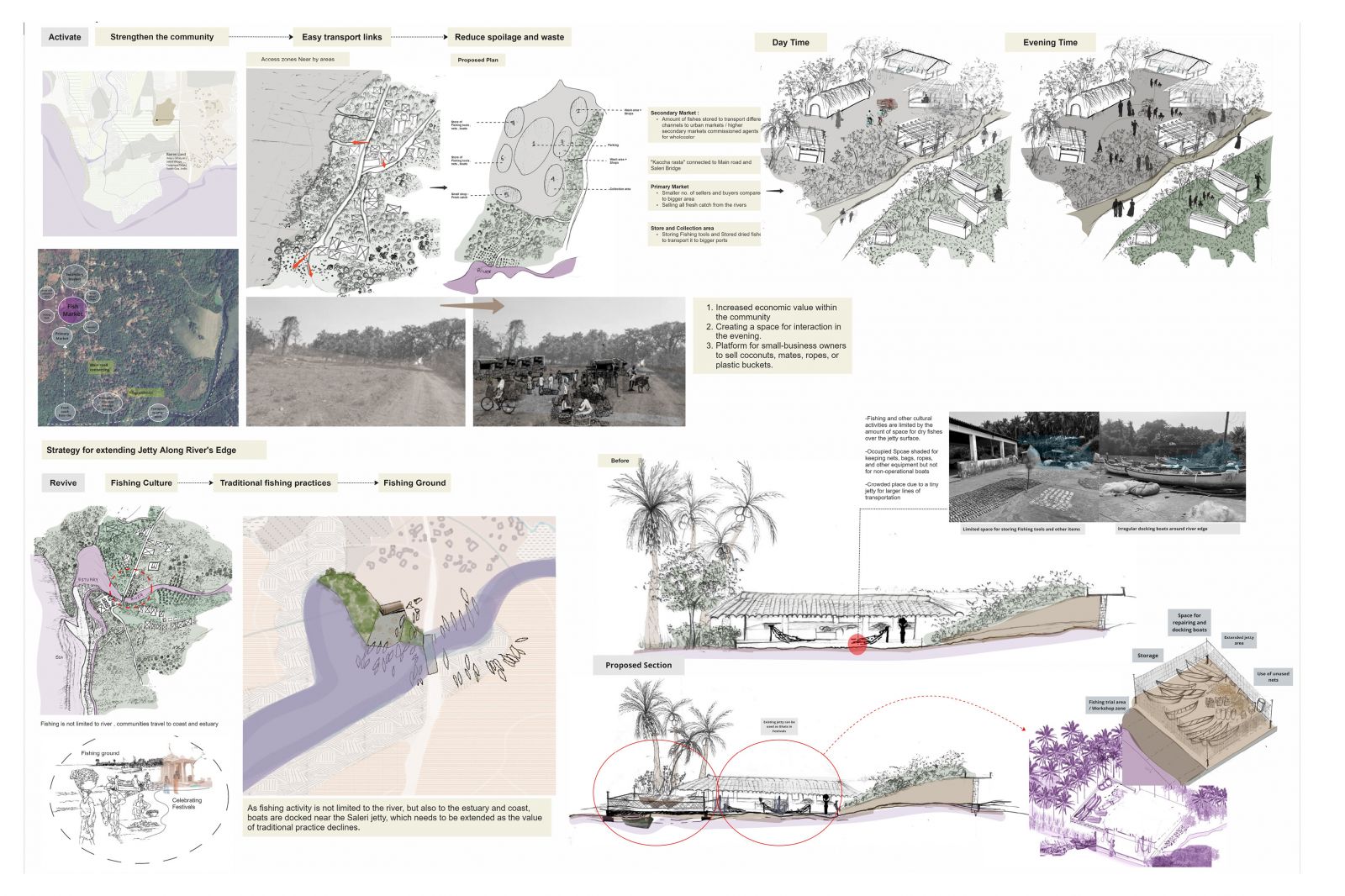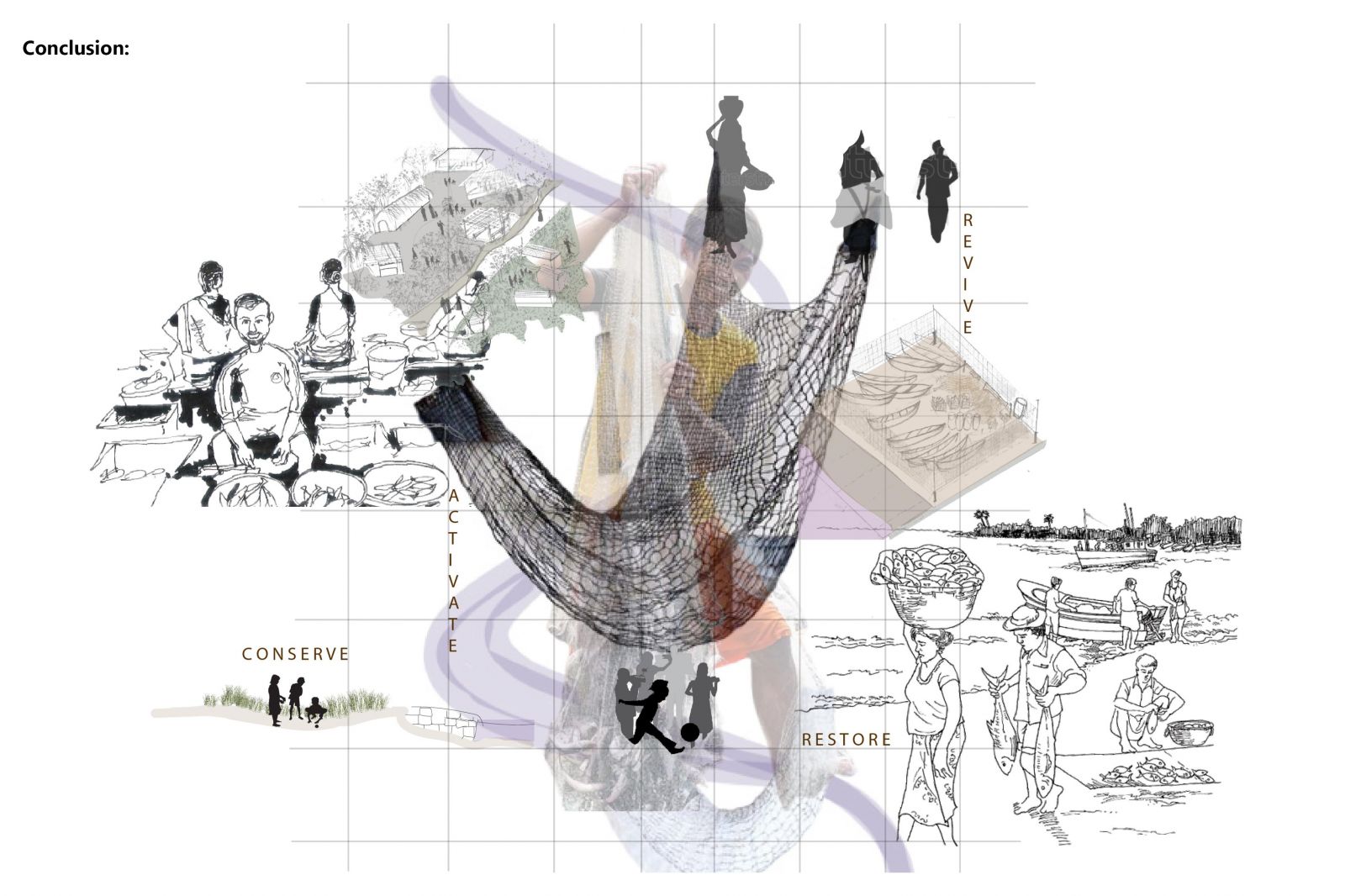Your browser is out-of-date!
For a richer surfing experience on our website, please update your browser. Update my browser now!
For a richer surfing experience on our website, please update your browser. Update my browser now!
The study strives to recognize and comprehend the mutually reliant structure of the fishing community and the common. The indigenous communities in the Saleri community, a small fishing community, maintain it. Communities rely heavily on the Saleri River as their main source of income because it offers a productive environment for aquatic biodiversity that is suitable for fishing, a plentiful supply of fresh water for domestic use, and the ability to grow coconuts using river water. It also acts as a center for interactions among fishermen and a place where they connect over a common bond and sense of identity, culture, and livelihood. These common have lost its identity and linkages as a result of urbanization, anthropogenic pressures, and the degradation of ecological layers. The project's objectives include locating these vanishing commons, recognizing their presence, and developing resilience to protect traditional ways of doing things. Traditional fishing practices must be restored in order to restore connections between the fishing community and the river.
View Additional Work